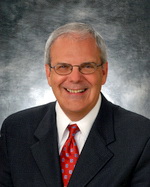What do you do when you don’t have enough money to do what you need to do for you or your family’s health? I know, it’s a redundant question? You go without, delay or borrow from your future in the form of debt. According to Reed Abelson and Milt Freudenheim of the New York Times in their recent article Even the Insured Feel the Strain of Health Costs, as employers struggle to keep up with mounting costs to cover their employees, the average cost of an annual health care premium for that employee has nearly doubled since 2001, from $1800 to nearly $3300 a year.
Example after example is delineated in the Times article regarding those individuals who just can’t afford the challenges presented by the rising food and gasoline prices. Those featured families and individuals skip meds, wait longer to take sick children to their pediatrician or are facing staggering bills from health care institutions. According to the accounting firm, Deloitte, the average American income that goes toward health care expenses is now approaching 1/5 of their total household spending annually.
As a hospital administrator, it is never easy to listen to the general public throw stones at the medical industrial establishment, but when it comes to fancy, esoteric diagnostic tools, unproven drugs that can cost $6000 a dose or the very best physicians known to man, bring ‘em on becomes the hue and cry as we, the health care consumer wants nothing but the best for ourselves and our families. This is America. We deserve it.
Of course, if you are looking for elective surgery and you happen to live in England, you will wait on average 1.5 years for that intervention, and if you are in Scotland, it will be very close to 2.5 years before that same surgery is available.
My Democratic friends embrace the hope of the future through proposed health plans that insure the masses. My Republican friends warn of the horrible train wreck those plans will cause in hospital emergency rooms as every George, Dick and Conde will make their way to our hospitals with no barrier in place to prevent them from over running our already strained bastions of care.
Regardless of your political bent, it does seem unconscionable that we have nearly 48,000,000 uninsured accounted for by the government. Most of these uninsured are young, single moms and kids who either can’t or choose not to vote. (No one has ever believed that to be a co-incidence.) This figure also does not include the underinsured and quite possibly may not include any of the 50,000,000 illegal aliens. We are the only industrialized nation in the free world that does not have a true health policy for our citizens.
So what is the answer? The iron triangle of the best, fastest and cheapest health care is something that cannot exist in a system that is still hanging on ever so completely to an acute care based model when the vast majority of our health care challenges are now chronic care cases. We 78,000,000 Baby Boomers are taking more pills to control our varied maladies than existed in total just 20 years ago. Ask your pharmacist how many drugs there are now compared to 1988.
One very real answer to this health problem sometimes seems too simple. Our nearly $2 trillion in yearly health care expenditures includes less than four percent of its total dollars for preventative care. Much of our problems are about wellness.
So, wash your hands, drop some weight, exercise, cut out the saturated fats, stop smoking and live a less stressful life by doing something other than stare at the television…or else just wait for that little blue pill that will help you be skinny, tan and sexy, and then sell the family car to pay for it.






